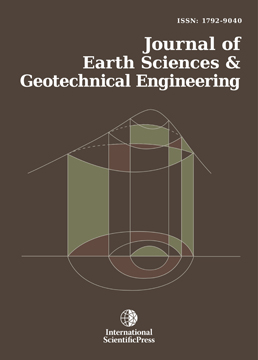Journal of Earth Sciences and Geotechnical Engineering
Geometric characterization of Point Bar Deposits in the lower River Niger, Niger Delta.
-
 [ Download ]
[ Download ]
- Times downloaded: 9612
Abstract
Remote sensing and GIS based results from the geometric characterization of point bar deposits in the Lower River Niger are presented in this work. In this study the geometry of 75- point bar deposits from Landsat images of 1985 and 2015 were documented and compared to determine the relationship that exist between geometric dimensions and the amount of change that has occurred on them. Point bars in 2015 are observed to be greater in length, width and area than those in 1985. The Rē values indicate that no relationship exists between point bar length and width. However, a significant relationship is observed to exist between both length and area and width and area of the point bars within the study area. Thus, the utilization of width to predict the length and vice versa of point bars is unreliable. Information from this study provides useful information on specific shape and size ranges that can be utilized for the efficient characterization and development of hydrocarbon reservoirs.
Keywords: Lower River Niger, Remote sensing, GIS, Landsat, Point bar geometry.
